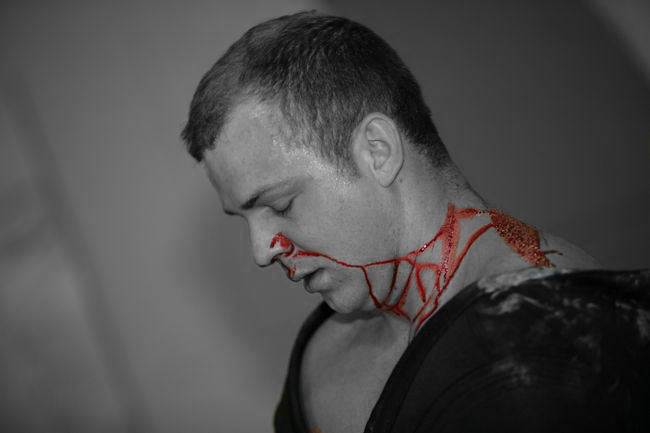
We've all heard a version of the old saying, “Are you strong enough to handle the pain?” I see this another way: “Is your pain great enough to make you strong?”
This past weekend I asked every Elite and Pro lifter we have in the gym a question. I emailed the same question to a handful of our sponsors. I asked, "How much physical pain do you have on a regular basis?"
Almost everyone said they woke up at least once a night because of shoulder or bicep pain and they all had one or two additional things that were bothering them at the moment. This short list included shoulders, knees, and lower backs. While this wasn’t a surprise, it did make me decide to probe a bit deeper. What I discovered is something that I feel to be one of the keys to success in anything you do.
I then asked them to rate, on a scale of 1-10, how every body part felt. Now the short list became very long and included: feet, ankles, knees, hips, hamstrings, lower back, upper back, neck, shoulders, elbows, one trap or the other, hands, forearms and on and on. Now all of these sub-issues were only ranking 2-4 on the pain scale while the main issues were up around 7. They are so used to dealing with the pain that the majority of their issues are just ignored or chalked up as being “part of the game”.
The longer an athlete is in a sport, the more messed up they will become. This is part of the game and if you get out unscathed you are one of the lucky few. Most of us will have we have a lot of pain to endure if we plan to reach our highest potential. The farther down the path you go, the more minor pain you find needs to be ignored. Throughout our journey we will be tested. As athletes, when we pulled our first muscle we felt it was the end of the world and were out of the sport for good. If our joints hurt we would run to the doctor because we "knew" it was major. The ones who figure out how to deal with the pain and keep moving forward are the ones who succeed. Let me rephrase that; the ones who know the difference between what is “part of the game” and what is not are the ones who succeed. Simply put, they're the ones who "ball up" move forward. The ones who bitch and complain that they can't take the pain and look for excuses are the ones who stay put.
The ones who will never make it to the top are the ones that can’t handle the pain. When you look deep at what determines if someone “feels great” is where you can see the difference. If a Pro lifter with ten things wrong can go into a session and only be hindered by a couple issues, then he (or she) feels great. Meanwhile others would call it a day or back off if one small thing was bothering them (but they don't think it's small, to them it's major drama). When you are pressing to get strong(er), things are supposed to hurt. The pain comes before the strength, not the other way around. Strength is the side effect of overcoming pain, uncertainty, and discomfort, if the strength you seek is extraordinary, that is.
The ability to deal with pain is not unique to the weight room. It is the same quality that will make us better in business, as employees, friends, fathers, mothers, husbands, and wives. Those who have the ability and the will to deal with all the pain life tosses their way and still keep pressing ahead are the ones who will be happiest. Non-physical pain, I think, is much like the physical pain presented above. As you deal with things you feel are major issues, the minor issues tend to matter less. How many times have you spoken to someone who has serious problems or read a story about loss and said to yourself, "Wow, that really puts things in perspective?" This is what I’m talking about. When your perspective of what pain truly is begins to change, that's when we begin to get strong(er). We you begin to truly understand that pain is "part of the game," you learn to ignore most of it. When we see pain as something to strive for and embrace instead of something to avoid at all costs we become stronger physically and mentally. Most people fear the pain they are suffering and are scared of any potentially negative outcomes. This is normal. The ones who move forward through the pain see the positives of what it can bring.
Embrace the Pain!








